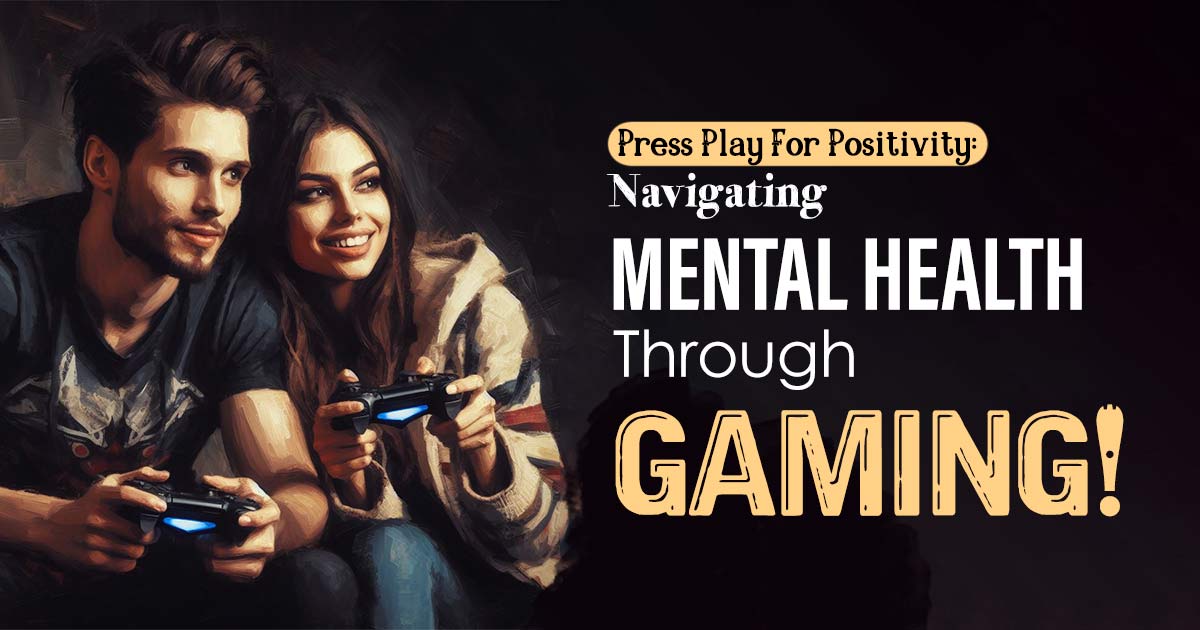In recent years, the perception of video games has shifted from mere entertainment to a potential source of positive influence on mental health. The stereotype of gamers as isolated individuals in a dark room has given way to a more nuanced understanding of the social, cognitive, and emotional benefits that gaming can offer. This essay delves into the myriad ways in which playing video-games for mental health helps.
1. Therapeutic Escapism
One of the primary ways in which playing video-games for mental health helps is through therapeutic escapism. Engaging in a captivating game world allows individuals to temporarily escape the stressors of daily life. This form of escapism is not about avoidance but provides a healthy way to unwind and decompress. Just as people turn to books or movies for an immersive experience, video games offer a dynamic and interactive outlet for relaxation.
Games with rich narratives and engaging storylines can transport players to fantastical realms, offering a break from reality and allowing them to experience a sense of accomplishment and adventure. The therapeutic value lies in the ability of these virtual worlds to provide a mental retreat, offering respite from anxiety, depression, or the general pressures of life.
2. Cognitive Benefits: Problem-Solving And Creativity
Contrary to the notion that video games encourage mindless behavior, many games require a high level of cognitive engagement. Strategic planning, problem-solving, and critical thinking are integral components of numerous video games. Video-games for mental health often present players with complex challenges, puzzles, and decision-making scenarios that stimulate the brain and enhance cognitive abilities.
For instance, strategy games like “Civilization” or puzzle-solving adventures like “Portal” demand intricate planning and problem-solving skills. Engaging with these video-games for mental health can result in improved cognitive functions, including enhanced memory, attention to detail, and the ability to think strategically. The cognitive benefits extend beyond the gaming environment, influencing everyday problem-solving skills and creativity.
3. Emotional Resilience And Regulation
Video-games for mental health also provide a platform for emotional expression and regulation. Many games incorporate emotionally charged narratives that allow players to empathize with characters and experience a range of emotions. This emotional engagement can contribute to emotional resilience, helping individuals understand and manage their feelings in a controlled environment.
Interactive storytelling in games like “The Last of Us” or “Life is Strange” allows players to navigate complex emotional landscapes, fostering empathy and emotional intelligence. In a therapeutic context, this emotional engagement can serve as a valuable tool for individuals struggling with emotional regulation, helping them build resilience and coping mechanisms.
4. Social Connections And Community Building
Contrary to the stereotype of the solitary gamer, video-games for mental health have evolved into a powerful medium for social interaction. Online multiplayer games, in particular, facilitate connections among players worldwide. These virtual communities offer a sense of belonging and camaraderie, breaking down geographical barriers and providing a supportive environment.
Platforms like Twitch and Discord further enhance the social aspect of gaming, allowing players to connect, share experiences, and build friendships. For individuals who may face challenges in forming traditional social connections, such as those with social anxiety, gaming communities offer a space for meaningful interaction and support.
5. Stress Reduction And Relaxation
Engaging in video-games for mental health has been linked to stress reduction and relaxation. Immersive gameplay, accompanied by captivating visuals and soundscapes, creates an environment conducive to relaxation. Games like “Stardew Valley” or “Animal Crossing” provide players with a virtual sanctuary where they can unwind, engage in enjoyable activities, and escape the pressures of the outside world.
Moreover, the interactive nature of gaming can serve as a form of active relaxation, allowing individuals to focus their attention on a specific task and diverting their minds from stressors. This diversionary aspect can be particularly beneficial for managing chronic stress and promoting overall mental well-being.
6. Physical Health And Coordination
While the focus is often on the mental aspects, video-games for mental health can also have positive effects on physical health. Exergaming, which involves physical activity through gaming, has gained popularity. Games like “Beat Saber” or “Ring Fit Adventure” encourage players to move their bodies, promoting physical fitness and coordination.
The combination of physical activity and entertainment addresses concerns about sedentary behavior often associated with gaming. This dual benefit of promoting both mental and physical health showcases the versatility of video games as a tool for holistic well-being.
As we continue to explore the diverse genres and experiences that the gaming industry has to offer, it becomes evident that video games are not merely a form of entertainment but a multifaceted tool with the capacity to enhance various aspects of our mental health. As research and discussions on this topic progress, the integration of video games into mental health strategies and interventions may become more commonplace, offering a unique and engaging avenue for personal growth and well-being.




























